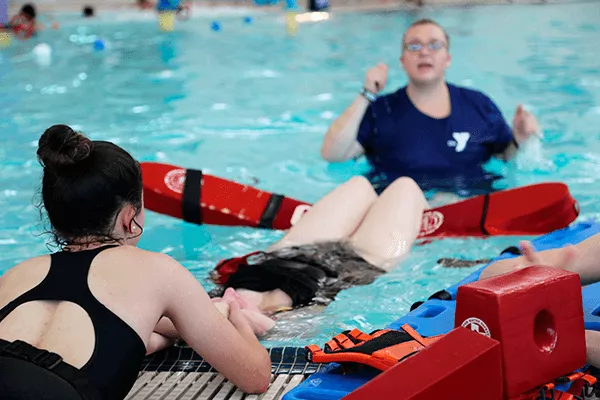
In the world of aquatics and water safety, a lifeguard’s certification isn’t just a piece of paper—it’s a vital credential that ensures public safety, personal competency, and professional credibility. However, like many professional certifications, lifeguard qualifications expire after a set period, typically every two years. When that time comes, choosing the right lifeguard recertification program is essential not just for compliance, but for skill renewal and confidence in emergency response situations. This article explores the key factors to consider when selecting the best lifeguard recertification program.
1. Understand the Purpose of Recertification
Lifeguard recertification programs are designed to:
-
Refresh and reassess core skills such as CPR, AED use, water rescue techniques, and first aid.
-
Update lifeguards on the latest safety protocols and guidelines, often revised by organizations like the American Lifeguard Association.
-
Ensure that lifeguards remain physically capable and mentally prepared to respond to emergencies.
-
Help meet local or national employment requirements.
Failing to recertify on time can lead to lapses in employment eligibility, increased liability, and, most critically, reduced effectiveness in life-saving situations.
2. Accreditation and Certification Bodies
When evaluating Lifeguard recertification programs, make sure they are backed by nationally or internationally recognized organizations. Common certifying bodies include:
Ensure that the program you choose aligns with your employer’s requirements and industry standards in your region.
3. Course Content and Delivery Format
Recertification isn’t a repeat of your initial training—it’s a targeted refresh that assumes prior knowledge. Still, the content should comprehensively cover:
-
Water rescue skills and surveillance techniques
-
First aid and emergency oxygen administration
-
CPR for professional rescuers and AED usage
-
Updates on new protocols and best practices
Modern programs offer various delivery formats, such as:
-
Blended Learning: A mix of online coursework and in-person skill assessments, offering flexibility for working lifeguards.
-
In-Person Training: Hands-on sessions conducted over a day or weekend, ideal for those who benefit from physical practice.
-
Onsite Corporate Programs: Convenient for employers who need to recertify groups of lifeguards.
Choose a format that fits your learning style, availability, and proximity to certified instructors.
4. Instructor Qualifications and Class Size
Instructor quality can make or break a recertification course. Look for programs with experienced, certified trainers who can provide real-world insights and constructive feedback. Class size also matters—a smaller group ensures more individualized attention and skill practice time.
Ask about:
-
Instructor-to-student ratios
-
Experience of the instructor in both teaching and active lifeguard duties
-
Flexibility for remediation or skill reassessment if needed
5. Cost and Value
The cost of lifeguard recertification typically ranges from $100 to $200, depending on location, format, and certification body. While budget is important, don’t simply choose the cheapest option. Evaluate the value by considering:
-
Reputation of the certifying organization
-
Included materials (e.g., manuals, pocket masks)
-
Renewal length—most programs certify for another two years
-
Additional perks such as job placement assistance or ongoing skill refreshers
Some employers may even subsidize recertification costs, so check with your aquatic facility or HR department.
6. Scheduling and Deadlines
Timing is crucial. Many certifying organizations allow a grace period post-expiration, but recertifying before your certification lapses is ideal. Some courses are offered monthly, others quarterly, especially in off-season months. Plan ahead:
-
Book a course at least 4-6 weeks before expiration
-
Set reminders for certification renewal dates
-
Have backup dates in case of schedule conflicts or cancellations
Lifeguards whose certifications lapse may be required to take the full course again, which is more time-consuming and costly.
7. Employer or Facility Requirements
Always confirm with your employer or local authority what certifications they recognize. Some may require specific providers (e.g., American Lifeguard Association only) or have in-house policies about training partners. Failure to meet these criteria could render your recertification void for employment purposes.
Additionally, some aquatic facilities offer internal refresher training alongside formal recertification to align with their unique protocols and environments. These can be valuable supplements to your official program.
8. Reviews and Recommendations
Lastly, word-of-mouth can be incredibly helpful. Ask fellow lifeguards, facility managers, or aquatic coordinators about:
-
Their experience with local programs
-
Quality of instruction and materials
-
Ease of scheduling and registration
-
Post-certification support
You can also check online reviews, social media groups, and forums dedicated to aquatic professionals.
Finalization
Recertifying as a lifeguard is more than a bureaucratic step—it’s a recommitment to safeguarding lives and maintaining peak performance in emergency situations. Choosing the right program ensures that you remain competent, confident, and qualified. By considering factors like accreditation, content, instructor quality, flexibility, and alignment with employer needs, you can make an informed decision that supports both your career and your responsibility as a lifesaver.






